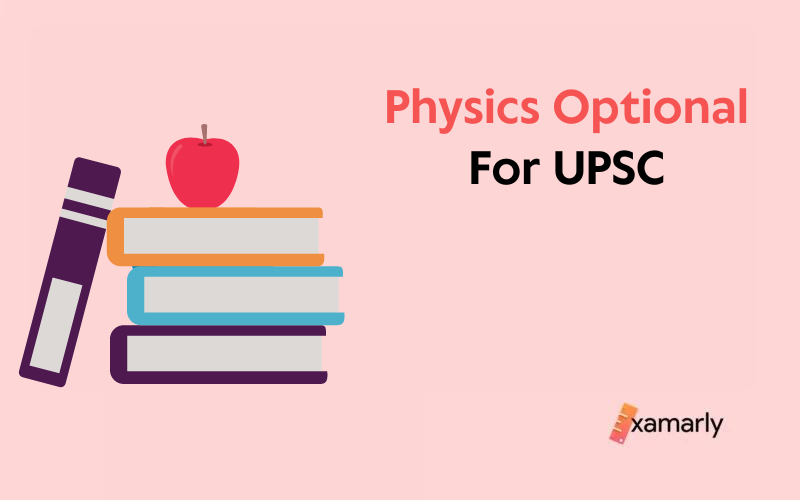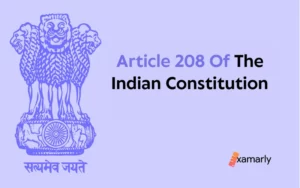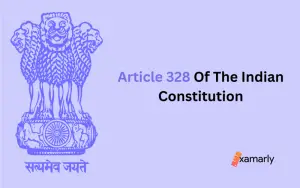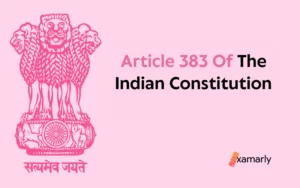Physics optional for UPSC is a fundamental science subject that should only be chosen by the aspirants who have studied this subject in their graduation or post-graduation. This subject can be a scoring subject if prepared adequately and methodically. Although there is essentially no overlap with the General Studies papers.
Read this article further to learn about how this optional subject is for competitive exams, how many opt for Physics optional subject for UPSC, the book list, preparation strategies, and many more such queries revolving around this core science subject.
- Physics Optional For UPSC
- How Many Take Physics Optional?
- How Is Physics Optional For UPSC
- Important Topics for Physics optional syllabus
- How to Prepare Physics Optional for UPSC Exam
- Physics paper I preparation strategy for UPSC
- Physics paper II preparation strategy for UPSC
- General Tips To Score High
- IAS Physics books
- Conclusion
- FAQs
Physics Optional For UPSC
Physics optional is a core science subject, and it can help you achieve good marks in two of the three sections of the UPSC exam. Unlike humanities subjects, which are difficult to predict, physics is a subject where answers are predictable and can be easily solved if a proper systematic approach is followed. For this reason, you should practice as many UPSC question papers as possible.
You can prepare for the UPSC Physics optional paper:
- with the help of study materials.
- by attempting a mock test to acknowledge your strengths and weaknesses.
- by revising frequently.
- by practicing derivations, numerical, and answer writing.
How Many Take Physics Optional?
Few candidates for the IAS mains exam choose physics as their optional. Without a doubt, this is due to the subject’s nature. This optional paper has produced some high performers. These applicants were successful in raising their overall scores and achieving a high rank.
Physics Optional UPSC Success Rate
The past data and figures reveal that the success rate has not been very impressive as other optional subjects. It is seen to be mostly between 9 to 16%.
In 2015, 20 out of 128 candidates got successful, representing a success rate of 15.6%. It is the highest success rate in the previous six years from 2010 to 2015.
UPSC Physics Optional Topper
There have been toppers with this optional as well. Take a look at the list below:
- In 2019, Pratibha Verma got 3rd rank.
- In 2017, Abhishek Surana and Varjeet Walia secured the 10th and 21st ranks respectively.
- Prateek Jain secured 82nd rank in 2016.
- 2015 toppers were Anupam Shukla and Vishu Mahajan with 10th and 70th ranks respectively.
How Is Physics Optional For UPSC
If you’ve been looking for a way to score well on the UPSC exam, then a Physics optional course can be a great solution. Physics is a core science optional that can help you score good marks in two papers but at the same time, be wise while making a choice since the optional has its own pros and cons as listed below.
Physics Optional Pros
- It’s a subject that can help you write brilliant answers on certain science and technology topics.
- Unlike humanities subjects, where the answers to some questions are impossible to predict, you can predict the result of physics questions with a high degree of accuracy.
- The syllabus for UPSC Physics optional is quite extensive, but once you prepare effectively for it, you won’t face any problems during the exam.
- Physics lets the candidate answer objectively. The likelihood of getting good marks is high because the answers are not susceptible to interpretation.
- If you do ample practice and are knowledgeable enough about numerical problems, they can help you score better.
- Physics concepts can be better explained with the help of diagrams and charts.
Physics optional cons
- The overlap with GS papers is minimal.
- To write lucid responses in this subject, conceptual clarity at the absolute highest level is required.
- The theory underlying numerical problems must also be thoroughly understood, as well as adequately practiced.
- As it is a fundamental science subject, you must provide exact answers in the exam hall.
- Ample revision is required apart from practicing numerical problems. If you want to perform well, make it a habit to revise and practice as much as possible
- The difficulty level of this subject is of graduation level. So if the candidate has not studied this subject in their graduation, then it will be difficult for them to cover for UPSC in a given time period.
Important Topics for Physics optional syllabus
Here are a few important topics to study for UPSC Physics Paper I and II. So kickstart your preparation with at least a basic concept of the below-mentioned subjects.
Physics Paper I
- Classical Mechanics
- Wave Motion
- Physical Optics
- Electricity and Magnetism
- Geometric Optics
- Electromagnetic Theory
- Thermal Physics
- Special Relativity
- Statistical Physics
- Black Body Radiation
Physics Paper II
- Quantum physics
- Electronics
- Modern physics
How to Prepare Physics Optional for UPSC Exam
The UPSC exam format includes two optional papers. Each paper has a maximum of 250 points, for a total of 500 points. If you want to crack the physics optional exam, you need to understand the entire syllabus.
For preparation as well, paper wise preparation strategy would be helpful and the same has been mentioned below.
Physics paper I preparation strategy for UPSC
- The finest book on particle mechanics is “Fundamentals of Mechanics” by JC Upadhyaya. You could also utilize DS Mathur’s “Mechanics,” as an alternative. One book will be enough to study. But keep your mind that reading books is crucial for this optional. Notes from just the lecture or coaching institutes won’t cut it.
- Ajoy Ghatak’s book “Optics” is a great resource for learning about optics and waves. The UPSC specifically cites illustrations from this book in its questions. As a result, reading them is crucial. This book also has some really good diagrams.
- The book “Thermal Physics” by Garg, Bansal, and Ghosh is comparatively superior to other books on thermodynamics. Diagrams and examples play a crucial role in this book as well.
- The best book for electrodynamics is “Introduction to Electrodynamics” by David J. Griffiths, which is categorized under electricity and magnetism.
Physics paper II preparation strategy for UPSC
- A good reference book for quantum mechanics is HC Verma. The book is easy to read and simple.
- Atomic and Molecular Physics is a brief topic, and the best book to cover this topic is ‘Atomic and Molecular Physics’ by Raj Kumar. Banwell is an additional book that can also be considered to cover the same topic.
- For the section on nuclear and particle physics, you will need to consult many books because the information is spread across many different sources. “Concepts of Modern Physics” by Arthur Beiser and either “Nuclear Physics” by SN Ghoshal or “Nuclear Physics” by SB Patel are the texts to be used.
- You should consult “Solid State Physics” by Puri and Babbar for this section on solid-state physics, devices, and electronics. Because this is a somewhat open-ended portion of physics, experts think there is a poor return on investment in this section. Reading the entire book by Puri and Babbar, covering all of the topics listed on the syllabus, is the best method to start learning this part. Afterward, look over the papers from prior years to see what questions have come from this part. You then concentrate solely on those regions. For instance, questions regarding the distinctions between p-n-p and n-p-n transistors have come up frequently.
General Tips To Score High
- Writing practice is critical for this subject. Previous year question papers should be practiced. Additionally, you’ll get a glimpse of the key and frequently-tested topics from which the UPSC mains exam’s questions are drawn.
- You must include the theory underlying the problem while solving numerical problems to earn the highest score. It is insufficient to just solve the numerical problems.
- Also, be aware of what should be avoided and what should be written in accordance with the marks assigned to that question. That is first read the question carefully and then state your answer accordingly in your answer sheet.
- Writing notes would enable to do complete revision more conveniently and time-efficient because the reading content would be drawn from numerous books and sources. Hence while covering the Physics syllabus for revision you won’t have to go to the piles of study resources.
- The secret to this optional paper is practice. To easily replicate the derivations and numericals in the answer booklet, you must practice them on a daily basis.
- By creating clear diagrams and presenting your information well, try to make your responses stand out from the crowd. Derivations are one example where everyone follows the same format when writing them. Here, you can stand out from the crowd by providing a strong supporting theory, writing in readable handwriting, and providing strong visual illustrations.
- Since at least 70% of the questions on this optional are repeats from prior years, solving previous years’ papers is significant.
IAS Physics books
There are several important books that you can use to prepare for the exam. For example, you can read NCERT textbooks which give you a basic idea of what you’ll be tested on. However, they don’t cover the entire syllabus of the UPSC Exam. Therefore, you should use other resources to learn more about the subject. Some other book recommendations are given below.
- Fundamentals of Mechanics by JC Upadhyaya
- Optics by Ajoy Ghatak
- Solid State Physics by Puri R.K and Babbar V.K.
- Thermal Physics by Garg, Bansal & Ghosh
- Mechanics by DS Mathur
- Introduction to Electrodynamics by David J. Griffiths
- Atomic and Molecular Physics by Raj Kumar
- Concepts of Modern Physics by Arthur Beiser
- Nuclear Physics by SN Ghoshal
- Quantum Physics by HC Verma
- Nuclear Physics by SB Patel
- Quantum Physics of Atoms, Molecules, Solids, Nuclei, and Particles by Resnick & Eisberg
- A Textbook of Sound by Khanna & Bedi
Conclusion
Physics is seen as one of the most difficult subjects and scoring subjects at the same time. Choosing it as a UPSC optional subject could be a very tough decision but with a systematic approach and well-defined theories, one can ace the examination.
The positive element of the subject is its objectivity. Unlike other optionals, it has a single answer capable of being proven. With almost no overlap with General Studies Papers, it has its cons as well.
Candidate should opt for this subject if he/she has a solid base in Physics as it won’t be difficult for them to cover the entire UPSC Physics Syllabus effectively in a shorter time period.
FAQs
Is Physics A Good Optional For UPSC?
Yes, it is a good optional subject to elect in the IAS mains exam if candidates with physics or engineering degrees opt for it.
Name of the UPSC topper with physics optional.
The most recent UPSC topper with physics optional is Pratibha Verma in 2019. She scored 3rd rank.
Is It Essential To Have Physics Optional Notes For UPSC?
Yes, it is important to make physics notes for UPSC Optional and prepare and revise from it. During revision, it is not possible to go through the number of books. Hence notes are vital.






